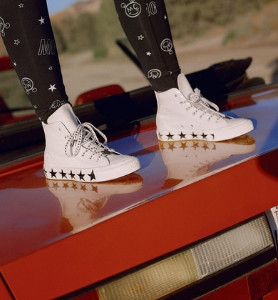Lexus Design Award: 2023 Winners
The Lexus Design Award has been a pivotal opportunity for emerging talent in Aotearoa's creative community. The competition consistently challenges students from leading universities to explore the frontiers of creativity. 2023 was the fourth edition of the local Lexus Design Award, inviting students from four tertiary design programs to participate in showcasing the brilliance of the country's budding design minds. This year, there were a record number of local entries with fifty-three applications across Auckland University of Technology and University of Auckland, eager to interpret the competition's theme of ‘Design for a Better Tomorrow.’
By providing students with access to the competition framework, Lexus encourages students to think outside the box, putting local design and talent on the map. In 2023, mentorship remains a cornerstone, and at a global level, Lexus works with a world-class panel of judges and mentors who are some of today’s most influential figures in art, design and technology. This year, students participating in the local award have been supported by esteemed mentors and Lexus ambassadors Simon James, Scott Bridgens, and Tim Rundle of Resident. These industry veterans not only provide valuable advice and support but priceless knowledge – a once-in-a-lifetime opportunity to learn from the very best in the industry. The judging criteria for the Lexus Design Award encourages students to envision inventive ways to achieve a sustainable future by offering actionable solutions to global issues whilst adhering to the core design principles of the Lexus brand: Innovate, Anticipate and Captivate.
Scott Bridgens, Tim Rundle & Simon James
University of Auckland
1st Place, Fiona Yoon ARctive
An exercise therapy programme aiming to address mental health for elders.
ARctive is a remote exercise therapy programme for elders, using augmented reality (AR) and artificial intelligence (AI) to promote holistic well-being and combat depression. It targets social, emotional, and spiritual well-being, focusing on physical well-being, a crucial yet often overlooked mental health aspect. ARctive comprises three main components guided by an avatar named Arc. These elements include an augmented reality exercise space for brain training and physical exercise, personalised avatars' advice, and a health progress and community support page.
2nd Place, MacKenzie Carkeek Haptic Patch
A device that helps phantom limb using VR technology.
"Enhancing Limb Perception Through Haptic VR" is a groundbreaking design that uses haptic technology and virtual reality to alleviate the physical and emotional distress experienced by amputees with phantom limb sensations. This condition is a complex interplay of physical and mental aspects, challenging self-perception. The project uses the "Haptic Patch," a device designed for amputees, to reduce or increase sensations of a phantom limb and bridge the emotional gap between the physical and mental self.
Auckland University of Technology
1st Place, Tom Saran and Antoine Helean Fire Aid
A heads up display augmented reality glasses for frontline firefighters’ safety and effectiveness.
Recognising a distinct lack of preparation and response in New Zealand’s government and firefighting teams, this problem in high crisis circumstances leads to the death of both civilians and firefighters. The heads-up display allows firefighters to access thermal imaging, real-time hazard detection, and vital situation data. This would provide the user crucial information about temperature gradients, gas levels, building blueprints, location of civilians and other firefighters. All in real time through a translucent display, empowering firefighters to make more informed decisions than ever under extreme circumstances.
2nd Place, Yeaseo Im Cocoon
A partition that can transform into a tent for toddlers who experience sensory overload.
Memories of hiding in small spaces and creating imaginary worlds are cherished in many people's childhoods. This behavior extends beyond play; it is closely tied to the development of a child's self-reliance and the capacity to regulate their thoughts and emotions independently. Any child can experience sensory overload, especially in modern society, where high levels of visual, auditory, or haptic stimuli surround them. These stimulations can become a more severe trigger for children with ASD (Autism Spectrum Disorder) or ADHD (Attention Deficit Hyperactivity Disorder), impacting their learning opportunities, well-being and overall development. Cocoon is a room divider that can transform into a tent, offering a calming space for children in their homes or new environments when they feel overwhelmed by their surroundings. Cocoon targets children ages three to five when they begin developing independence and need support coping with school or other facilities.
Lexus has provided cash prizes to the first and second place winners from each university of $4,000, $2,000. The winners were announced on November 8th at a prize-giving ceremony hosted by Simon James in Mount Eden, Tāmaki Makaurau.




